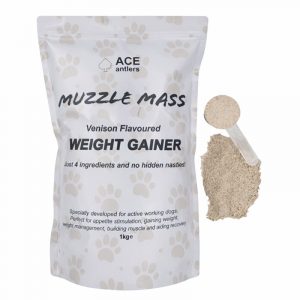Arthritis is an inflammatory condition that causes stiff, painful, and swollen joints. In dogs, it mostly affects their hips and elbows, but can also occur in their back. While most common in older dogs, arthritis can affect pets of any age. If you suspect your furry friend is struggling with their joint health, the experts from Bob Martin have offered their tips for recognising and treating arthritis in dogs.
Which Breeds are More Prone to Arthritis?
Weight, activity levels, and age can all contribute to joint health. Some breeds are more prone to weight gain and high activity levels, which can put them at a higher risk of joint conditions like arthritis.
Larger breeds tend to be more prone to joint problems like arthritis due to their increased body weight. These breeds include Labradors, German shepherds, golden retrievers, rottweilers, Bernese Mountain dogs, and Saint Bernards. Many large breeds are also particularly active, which can put further strain on their joints.
Other dog breeds, such as pugs, dachshunds, and French and English bulldogs, are more likely to develop arthritis due to their small build. These dogs can be prone to weight gain as well, which puts extra pressure on their joints. Bulldogs are also more likely to see wonkiness in their legs if their joints aren’t formed properly, which can lead to arthritis.
While large and small dogs are more prone to arthritis, some medium-sized breeds can also be more likely to develop the condition due to high activity levels. Spaniels are a prime example of this. Naturally active, spaniels’ joints can become overused at an early age.

How to Spot Early Signs of Arthritis in Dogs
While some dog breeds are more prone to getting the condition, this doesn’t necessarily mean your dog will or won’t get arthritis. If you’re worried about your dog’s joints, it’s worth keeping an eye on their behaviour. Some common signs of arthritis include:
- Limping or lameness, particularly after a walk
- Tiredness
- Irritability
- Licking or chewing painful areas
- Difficulty sitting down or getting up
- Reluctance to be touched in certain areas
If you notice any of these symptoms, it’s best to call your vet as soon as possible.
How to Treat Arthritis in Dogs
Although there is no cure for arthritis, there are some treatments you can try to help ease symptoms and make your dog more comfortable. These include:
Joint Supplements
A healthy, balanced diet can contribute to your dog’s overall health and wellbeing and ensuring your dog is eating well can help them shed a few pounds if their weight is affecting their joints. You could also add joint supplements containing adding omega-3 to your pet’s diet as this is thought to help fight inflammation.
Glucosamine is another supplement that can encourage healthy joints in dogs. This molecule helps maintain cartilage and tendons and can help repair tendons and ligaments. Glucosamine is often used in conjunction with chondroitin, which helps maintain healthy joint cartilage.
Dog joint supplements usually contain omega-3, glucosamine, and chondroitin (alongside other essential vitamins and minerals) to give your dog everything they need in one single dose. These supplements can’t treat arthritis directly but can help provide support. Before adding supplements to your dog’s diet, it’s best to consult your vet to make sure this is the right option for your pet.
Hydrotherapy
Some dogs may benefit from hydrotherapy during which your dog is placed in a life jacket and put on an underwater treadmill. The support of the water helps to take pressure off the dog’s joints as they walk, so they can keep active without any discomfort. This can help reduce swelling, build muscle, and lose weight, making it a good option for dogs whose joint pain stems from weight.
Use a Harness
If your dog has arthritis then they may find walks slightly uncomfortable. Regular short walks can give them enough exercise and fresh air without putting too much strain on their joints. You can also help ease some discomfort by using a harness, which will take some of the pressure off their hips and hind legs.
Keep Them Warm
Cold weather can cause your dog’s joints to stiffen, which can exacerbate the problem. Placing a heat pad under their bed on cold days can help ease some of their symptoms. You should also make sure your dog is fully dry when coming in from outside.
Lisa Melvin, Head of Marketing from Bob Martin comments:
“While arthritis can happen for a number of reasons, keeping your dog in good health from an early age can help protect against joint conditions later in life. A healthy, balanced diet is essential as it not only helps prevent weight gain but also provides your pet with all the essential nutrients they need.
“Ask your vet about joint supplements too. These can help keep your dog’s joints in check from an early age, which can help give them the best start and reduce the likelihood of them struggling with their joints in the future.
“Getting plenty of exercise can also help keep your dog’s weight at a healthy level, but running too much on hard surfaces can put pressure on their joints. Instead, try a low-impact sport with them, such as swimming.”






